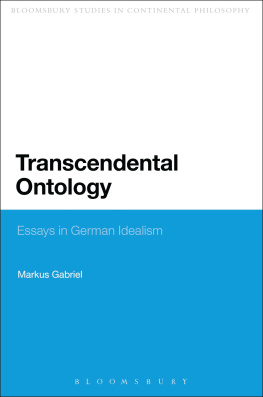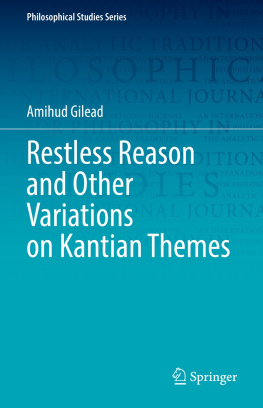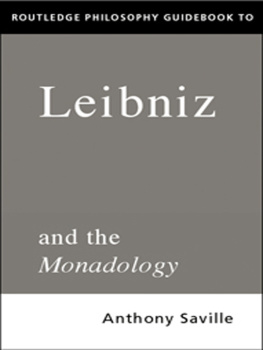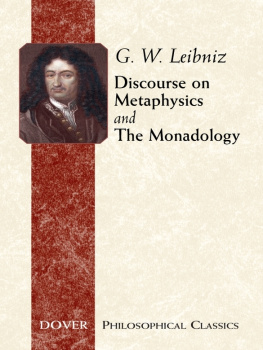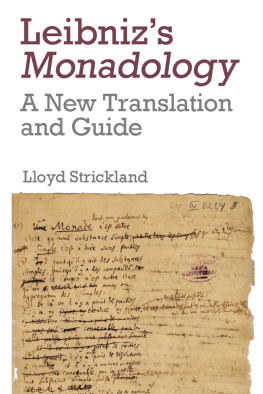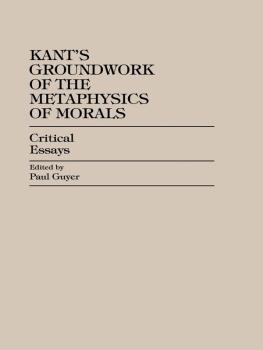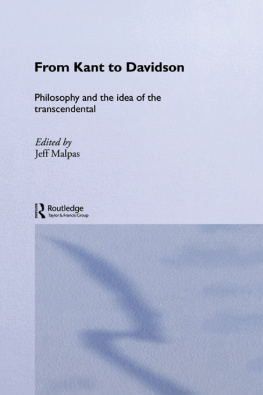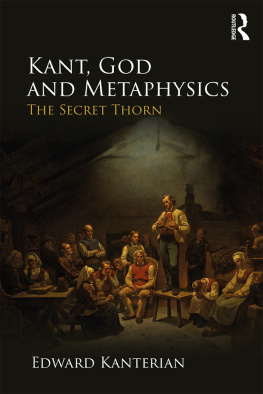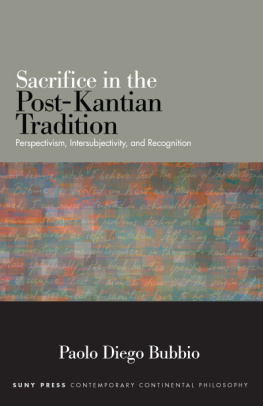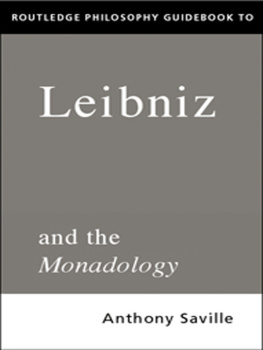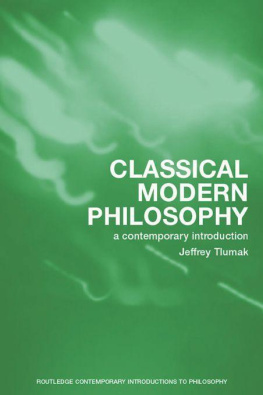Contents
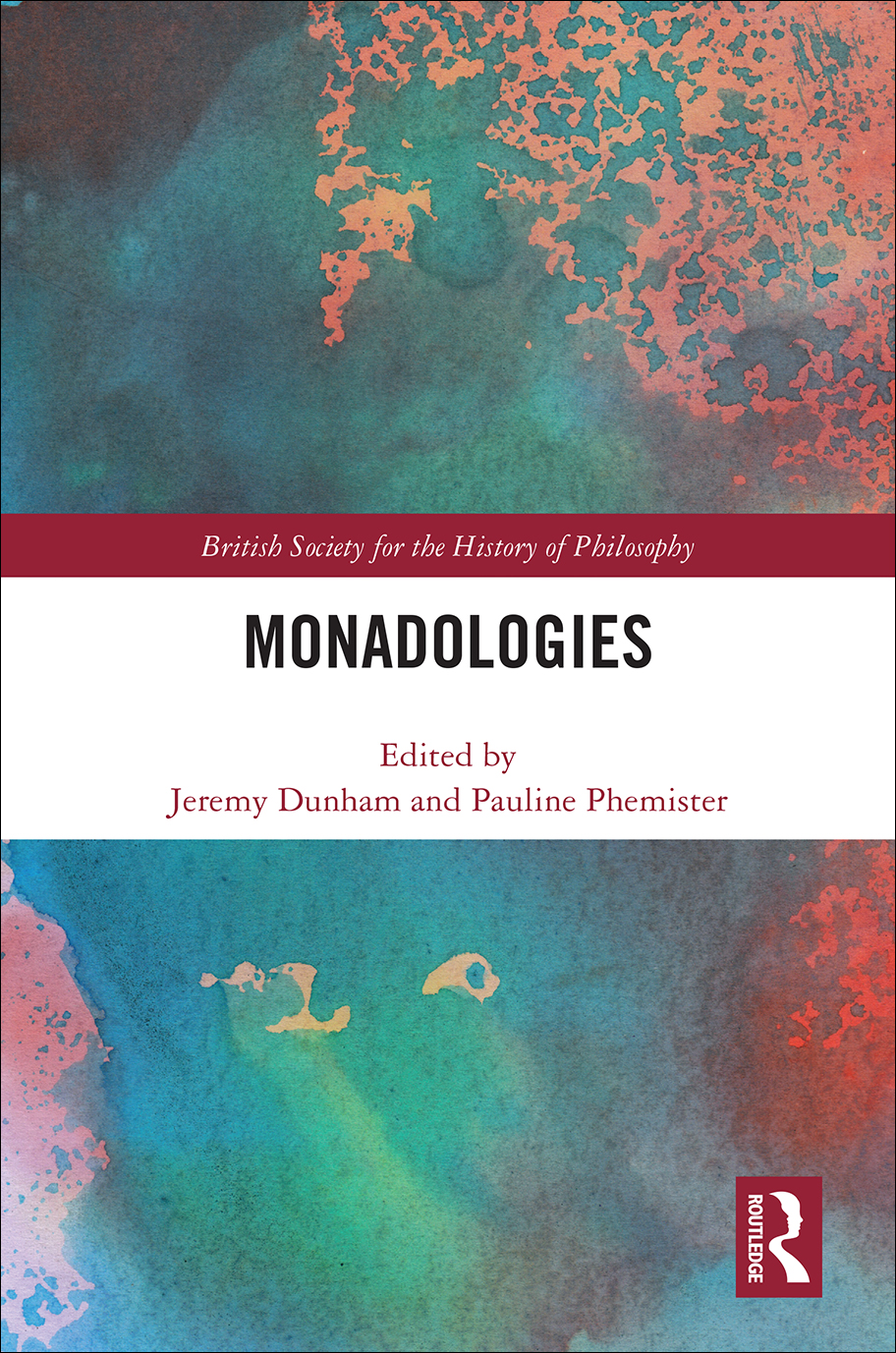
Monadologies
According to the received view, Kants critical revolution put an end to the kind of metaphysics of which Leibnizs Monadology is the example par excellence. This volume challenges Kants claim by providing a far more nuanced version of philosophys post-Kantian tradition that spans from the late eighteenth to the early twentieth century and brings to light a rich tradition of new monadologists, many of whom have been unjustifiably forgotten by contemporary historians of philosophy. Through this complex dialogue, monadology is shown to be a remarkably fecund hypothesis, with many possible variations and developments. The volumes focus on monadology exposes the depth and breadth of the post-Kantian period in an original and previously unexplored way and opens up numerous avenues for future research. Crucially, however, this volume not only shows that monadological metaphysics did continue after Kant but also asks the critical question of whether it should have done so. Consequently, the question of whether monadological metaphysics could also have a future is shown to be relevant in a way that was previously almost inconceivable.
This book was originally published as a special issue of the British Journal for the History of Philosophy.
Jeremy Dunham is Assistant Professor in Philosophy at the University of Durham, UK.
Pauline Phemister is Professor of the History of Philosophy at the University of Edinburgh, UK.
First published 2019
by Routledge
2 Park Square, Milton Park, Abingdon, Oxon, OX14 4RN, UK
and by Routledge
711 Third Avenue, New York, NY 10017, USA
Routledge is an imprint of the Taylor & Francis Group, an informa business
2019 British Society for the History of Philosophy
All rights reserved. No part of this book may be reprinted or reproduced or utilised in any form or by any electronic, mechanical, or other means, now known or hereafter invented, including photocopying and recording, or in any information storage or retrieval system, without permission in writing from the publishers.
Trademark notice: Product or corporate names may be trademarks or registered trademarks, and are used only for identification and explanation without intent to infringe.
British Library Cataloguing-in-Publication Data
A catalogue record for this book is available from the British Library
ISBN13: 978-0-8153-6220-3
Typeset in Times New Roman
by codeMantra
Publishers Note
The publisher accepts responsibility for any inconsistencies that may have arisen during the conversion of this book from journal articles to book chapters, namely the possible inclusion of journal terminology.
Disclaimer
Every effort has been made to contact copyright holders for their permission to reprint material in this book. The publishers would be grateful to hear from any copyright holder who is not here acknowledged and will undertake to rectify any errors or omissions in future editions of this book.
The chapters in this book were originally published in the British Journal for the History of Philosophy, volume 23, issue 6 (December 2015). When citing this material, please use the original page numbering for each article, as follows:
Introduction
Monadologies: An Historical Overview
Jeremy Dunham and Pauline Phemister
British Journal for the History of Philosophy, volume 23, issue 6 (December 2015) pp. 10231032
Chapter 1
Reconciling Leibnizian Monadology and Kantian Criticism
Richard Mark Fincham
British Journal for the History of Philosophy, volume 23, issue 6 (December 2015) pp. 10331055
Chapter 2
Herbarts Monadology
Frederick Beiser
British Journal for the History of Philosophy, volume 23, issue 6 (December 2015) pp. 10561073
Chapter 3
Bolzanos Monadology
Peter Simons
British Journal for the History of Philosophy, volume 23, issue 6 (December 2015) pp. 10741084
Chapter 4
From Habit to Monads: Flix Ravaissons Theory of Substance
Jeremy Dunham
British Journal for the History of Philosophy, volume 23, issue 6 (December 2015) pp. 10851105
Chapter 5
Reviving Spiritualism with Monads: Francisque Bouilliers Impossible Mission (183964)
Delphine Antoine-Mahut
British Journal for the History of Philosophy, volume 23, issue 6 (December 2015) pp. 11061127
Chapter 6
Learning from Leibniz: Whitehead (and Russell) on Mind, Matter and Monads
Pierfrancesco Basile
British Journal for the History of Philosophy, volume 23, issue 6 (December 2015) pp. 11281149
Chapter 7
British Idealist Monadologies and the Reality of Time: Hilda Oakeley Against McTaggart, Leibniz, and Others
Emily Thomas
British Journal for the History of Philosophy, volume 23, issue 6 (December 2015) pp. 11501168
Chapter 8
Heidegger on the Being of Monads: Lessons in Leibniz and in the Practice of Reading the History of Philosophy
Paul Lodge
British Journal for the History of Philosophy, volume 23, issue 6 (December 2015) pp. 11691191
Chapter 9
Five Figures of Folding: Deleuze on Leibnizs Monadological Metaphysics
Mogens Lrke
British Journal for the History of Philosophy, volume 23, issue 6 (December 2015) pp. 11921213
Chapter 10
Leibnizs Monadological Positive Aesthetics
Pauline Phemister and Lloyd Strickland
British Journal for the History of Philosophy, volume 23, issue 6 (December 2015) pp. 12141234
For any permission-related enquiries please visit:
http://www.tandfonline.com/page/help/permissions
Delphine Antoine-Mahut is Professor of Early Modern Philosophy at the cole normale suprieure de Lyon, France.
Pierfrancesco Basile is Lecturer in Philosophy at the University of Bern, Switzerland.
Frederick Beiser is Professor of Philosophy at Syracuse University, USA.
Jeremy Dunham is Assistant Professor in Philosophy at the University of Durham, UK.
Richard Mark Fincham is Associate Professor and Chair of Philosophy at the American University in Cairo, Egypt.
Mogens Lrke is Senior Researcher at the Centre national de la recherche scientifique, Paris, France.
Paul Lodge is Professor of Philosophy, based at Mansfield College, University of Oxford, UK.
Pauline Phemister is Professor of the History of Philosophy at the University of Edinburgh, UK.
Peter Simons is Professor Emeritus of Philosophy at Trinity College Dublin, Ireland.


